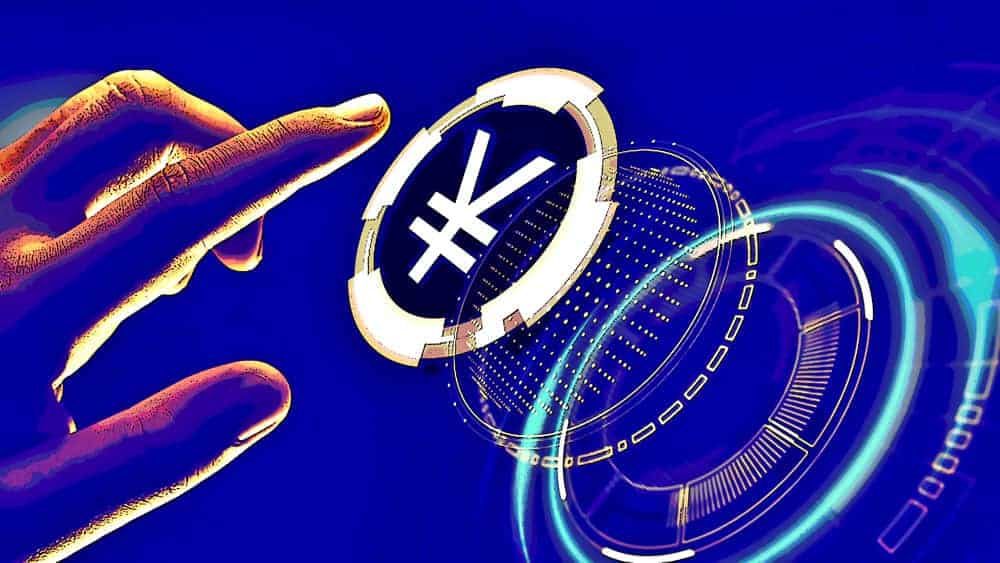The rise of China’s digital yuan gained momentum and greater attention at the end of 2020, partly as a result of two large-scale digital currency electronic payment (DCEP) tests that took place in Suzhou and Shenzhen, but also because of a recent announcement that Hong Kong will work with China’s central bank to further develop the digital yuan for cross-border payments.
The Hong Kong Monetary Authority (HKMA) is in talks with Digital Currency Institute, a research unit of the People’s Bank of China (PBOC), to pilot test the DCEP, part of the PBOC’s ambitious project to develop a digital currency. While there’s no timetable as yet for the launch of the digital yuan, also called e-CNY, for cross-border payments, tangible progress is expected in 2021.
The development is significant because once the digital yuan is put into use in Hong Kong for cross-border payment, it will be the first time the new is used outside the Chinese mainland.
Eddie Yue, the chief executive of HKMA, in early December said that the HKMA is in discussion with the Digital Currency Institute on the technical pilot testing of using the digital yuan for making cross-border payments and making the corresponding technical preparations.
The e-CNY will bring convenience to Hong Kong and mainland tourists, Yue said, “as the renminbi is already in use in Hong Kong and the status of e-CNY is the same as cash in circulation.”
No timetable for e-CNY launch
Although no timetable for the e-CNY’s official launch was given, the influential financial publication 21Caijing reported an HKMA spokesperson saying that the DCEP testing will be conducted at Bank of China Hong Kong with 200 staff and selected merchants in Hong Kong.
It’s not the first time the HKMA has explored blockchain-related technologies for payments and financial services. Since 2016, HKMA has been researching distributed ledger technology (DLT). In September this year, HKMA selected ConsenSys, a U.S. blockchain company that develops decentralized payment networks, as its partner to cooperate with Bank of Thailand in the second phase of Project Inthanon-LionRock on cross-border payments.
Project Inthanon-Lion Rock is important because it was a first, but it differs from the DCEP development between Hong Kong and mainland China. While Thailand is a valuable trading partner with significant cross-border payments with Hong Hong, this is dwarfed by that from mainland China. But, more important, Hong Kong is one of the major players in cross-border payments in the Hong Kong-Macau-Guangdong Greater Bay Area, or GBA.
The Greater Bay Area is China’s financial center and tech hub, with a 70-million population and combined GDP of CNY11.62 trillion (US$1.7 trillion) in 2019. It comprises 11 cities, including two special administrative regions — Hong Kong and Macau — and tier-one mainland Chinese cities Shenzhen and Guangzhou.
While Hong Kong wants to be part of the GBA development, the DCEP digital currency could also play an important role for the Hong Kong government as it seeks to revitalize and reenergize the city after the social unrest in 2019 and the Covid-19 pandemic in 2020.
“The HKMA feels introducing DCEP would put Hong Kong back in its right place, front and center, as Asia’s financial hub, and would bolster financial jobs, bring back international companies and once again make Hong Kong the undeniable financial center in Asia,” said Stanley Chao, managing director of All In Consulting, a culture change consulting firm based in Los Angeles.
In a paper published by the China Finance 40 Forum this week, Zhou Xiaochuan — a governor of China’s central bank until 2018 — clarified that the e-RMB, up to now, has been incorrectly viewed by the outside world as a central bank digital currency (CBDC).
The DCEP will not be issued directly by China’s central bank, Zhou wrote. Most people define CBDCs as being state-issued. But in the case of China’s DCEP, the digital currency would be issued by China’s state-back banks, and it would be the commercial banks — not the central bank — that would be holding the the liabilities, according to Zhou.
Hong Kong can reaffirm status as top Asia financial hub
“The DCEP, if implemented successfully and quickly, can re-establish Hong Kong as the premiere Asia financial hub and settle any arguments that other locations, like Singapore, Bangkok or even Hainan, could one day displace the SAR,” Chao added.
However, adopting DCEP for cross-border transactions still faces legal challenges. As well, the “one country, two systems” rule of law in Hong Kong will be tested.
Three different legal systems in the GBA make cross-border transactions far from seamless. Macau’s is based on Portuguese civil law, Hong Kong’s on British common law, and mainland China’s on a unique “socialist legal system.” The core question of which laws will govern cross-border transactions presents an intriguing legal dilemma.
“Some financial laws in Hong Kong may be in direct opposition to [mainland] China laws,” Chao said. “Which one will apply? And are international companies comfortable using a DCEP with potentially competing jurisdictions?”
In addition, for the Hong Kong DCEP system to be successful, expatriates and international companies must also have full confidence in the digital yuan with respect to privacy and that any data collected will not be used against them, Chao added.
But it’s all those uncertainties that make Hong Kong a unique sandbox for testing out DCEP and cross-border transactions, said Charles d’Haussy, director of strategic initiatives at ConsenSys, in an earlier interview with Forkast.News.
“I’m convinced that 2021 will be the year where you will see more and more people having CBDCs in their wallets or within their businesses,” d’Haussy said. “Probably something people will not expect is that a lot of people in the market will be using CBDCs hopefully without even noticing.”




